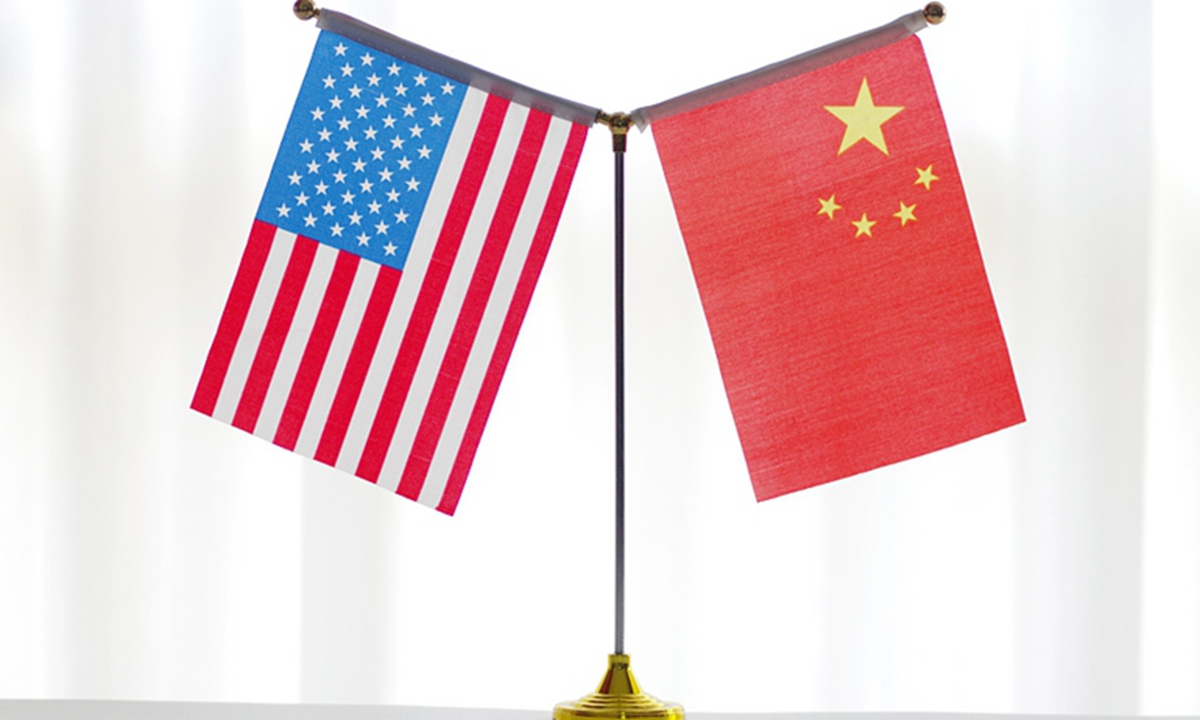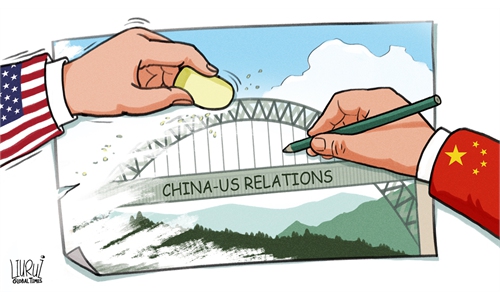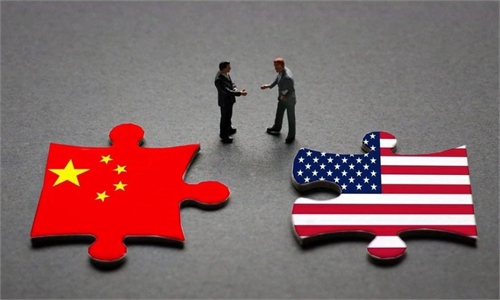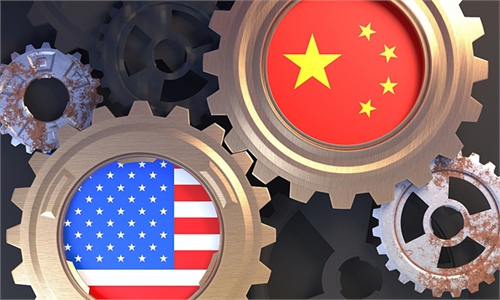
China US File Photo:CFP
The Chinese Ministry of Foreign Affairs officially announced on Friday that Chinese President Xi Jinping will attend the Group of 20 (G20) Summit in Bali, Indonesia, from November 14 to 17 and attend the APEC Economic Leaders' Meeting in Bangkok, Thailand, as well as visit Thailand from November 17 to 19. This is a long-awaited piece of significant news for the international community.
On the sidelines of the meetings, Xi will hold bilateral meetings with French President Emmanuel Macron, US President Joe Biden, Senegalese President Macky Sall, Argentine President Alberto Fernandez, among others, upon request. The White House disclosed one day earlier on Thursday that President Biden and President Xi will meet in Bali, Indonesia, on Monday. This has to some extent reflected the eagerness of the US side. It will be the first face-to-face meeting between the two heads of state since Biden took office. At a time when tensions between the two major powers are escalating, the significance of the two leaders having candid and in-depth exchanges directly is self-evident.
Regarding the upcoming heads-of-state meeting, regardless of what is talked about at the time, the move of "sitting down to talk" between the leaders of China and the US sends a positive signal that can help ease the tension of the situation. As one of the most important bilateral relations in the world, China-US relations are encountering unprecedented difficulties. Not only China and the US, but also the Asia-Pacific region and the whole world are feeling the increasing pressure and potential risks. It has become an increasingly strong common aspiration of the international community to promote China-US relations to return to the right track of healthy and stable development at an early date. This is also the historical responsibility entrusted by the current international situation and the reality of China-US relations to both countries.
We notice that the US side leaked information through various channels before the meeting. After proposing setting up "guardrails," the US this time has put forward suggestions such as building a floor for relations with China and laying out "what each of our red lines are." Despite the change in wording, they have similar meaning. Our understanding is: They mean to avoid a fierce confrontation or even conflict between China and the US. We would like to believe that the US does not want China-US relations to continue to deteriorate until they come to a dead end. As a country that firmly follows the path of peaceful development, China is more unwilling to be involved in conflicts with any country. In other words, this should be a consensus between the two countries.
It must be said that the difficult situation in China-US relations today is entirely caused by the wrong perception and behavior of some people on the US side. "Avoiding a conflict between China and the US" should not be an empty slogan. Washington needs to take concrete actions. For the Chinese side, the three joint communiqués are the most important "guardrails" for bilateral relations, and the one-China principle is an insurmountable "red line." The problem now is that this very clear and unambiguous definition becomes ambiguous when it reaches the US, which makes the Chinese side feel that the US' emphasis on "guardrails" or "floor" is just meant to constrain and restrict China's defense of its core interests. The Taiwan question is at the center of China's core interests, and the one-China principle is the basis of the political foundation of China-US relations. There is no room for bargaining. Facts show that the US' understanding of the "red line" of China-US relations is far from adequate.
US National Security Advisor Jake Sullivan said that the US will brief Taiwan island on the meeting between the heads of states of the US and China, and expressed confidence that the Taiwan authorities would feel "very secure and comfortable." This is first a serious violation of the one-China principle. The only way to make the people on the Taiwan island "secure and comfortable" is to give up any support and encouragement for "Taiwan independence." The US must recognize that on the Taiwan question, peaceful resolution is incompatible with secessionist attempts for "Taiwan independence." To truly maintain peace across the Taiwan Straits, it is necessary to firmly oppose and stop any "Taiwan independence" acts.
China's desire to improve China-US relations is sincere, while its attitude to safeguarding its core interests is firm. This has never changed. China will always view and develop China-US relations in accordance with the three principles of mutual respect, peaceful coexistence and win-win cooperation put forward by President Xi. This position will also be reflected during the meeting between the two heads of state. We hope that Washington will take a responsible attitude and meet China halfway.



